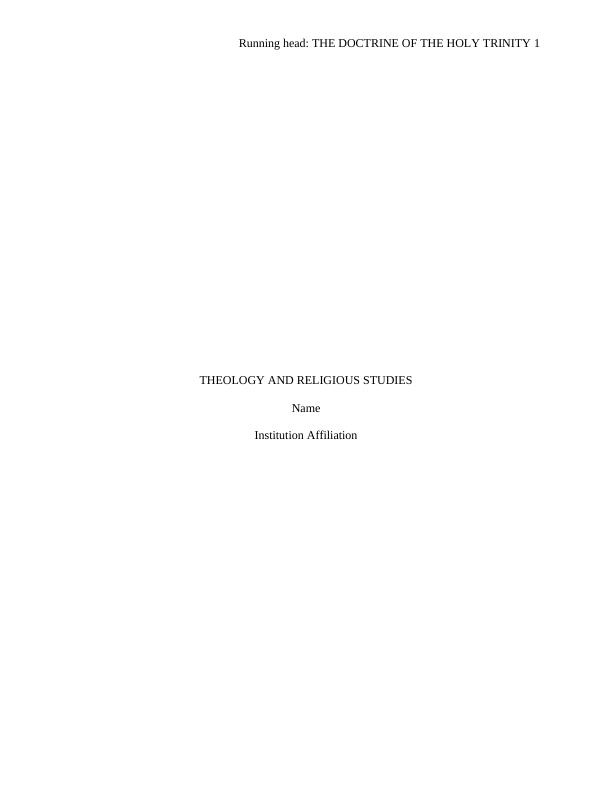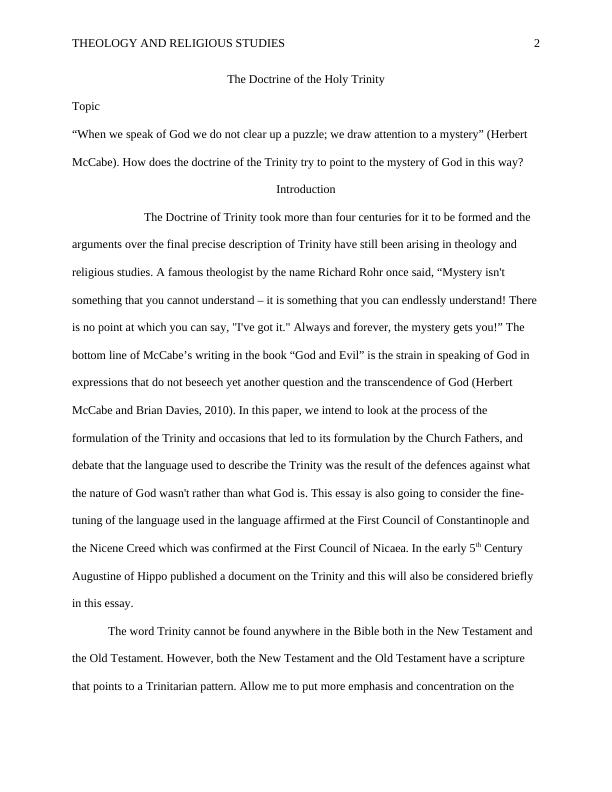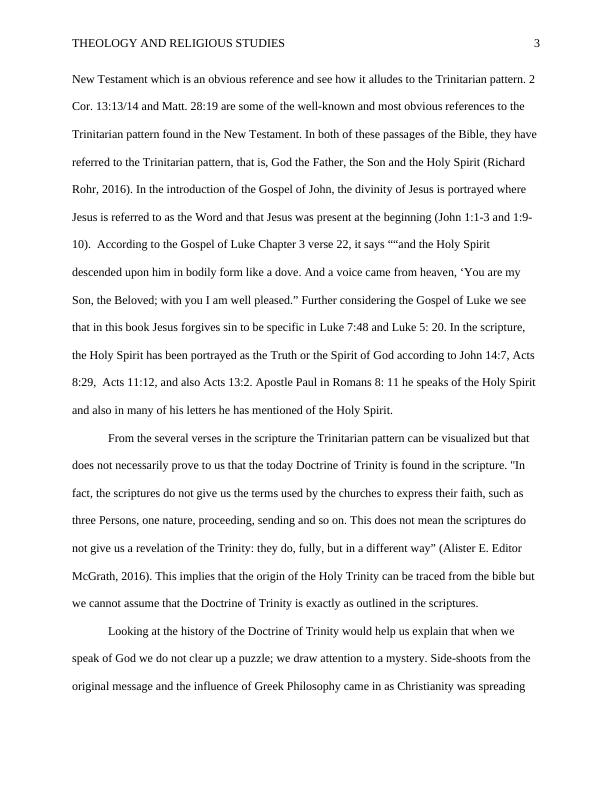The Doctrine of the Holy Trinity: Exploring the Mystery of God
This subject offers an introductory engagement with the major doctrines of the Christian faith, including God as Trinity, the person and work of Christ, the Spirit, humanity and the church. It explores the tasks, methods and sources of Christian theology, enabling students to develop initial skills of theological reasoning together with the capacity to use theological vocabulary. The subject introduces key figures in the history of theology, and it explores connections between the discipline of theology and contemporary life.
Added on 2023-06-11
About This Document
The Doctrine of the Holy Trinity: Exploring the Mystery of God
This subject offers an introductory engagement with the major doctrines of the Christian faith, including God as Trinity, the person and work of Christ, the Spirit, humanity and the church. It explores the tasks, methods and sources of Christian theology, enabling students to develop initial skills of theological reasoning together with the capacity to use theological vocabulary. The subject introduces key figures in the history of theology, and it explores connections between the discipline of theology and contemporary life.
Added on 2023-06-11
End of preview
Want to access all the pages? Upload your documents or become a member.



